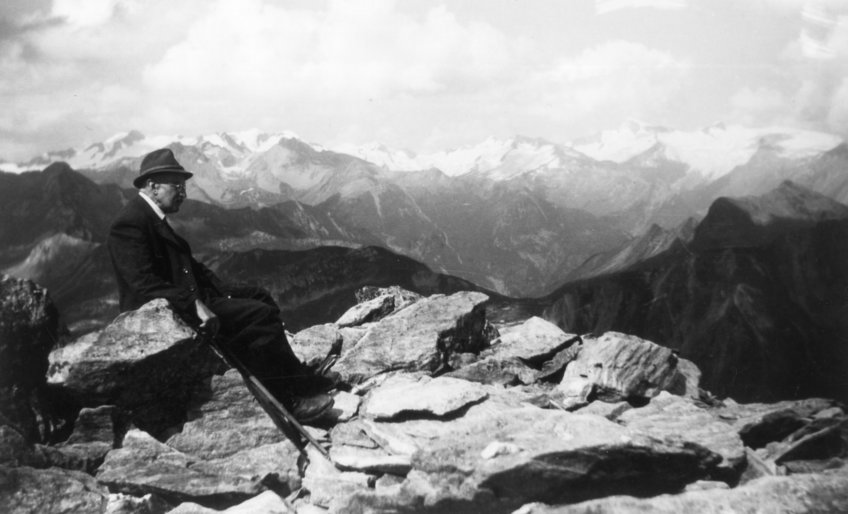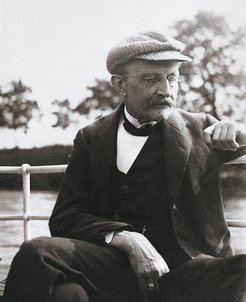
Max Planck’s private life
Max Planck was a dedicated family man, who only felt “completely human and at ease” when he was with his family
Max Planck was a dedicated family man, who only felt “completely human and at ease” when he was with his family. However, his private life was overshadowed by great tragedy. His wife died in 1909 and he survived all of his children from this marriage. His son Karl was killed in the First World War and his twin daughters both died in childbirth in 1917 and 1919. His son Erwin, to whom he was particularly close, was executed by the Nazis in January 1945 for involvement in July 20th conspiracy. Two years after the death of Marie Merck, Planck married Margarethe von Hoesslin, the niece of his first wife. This marriage produced his son Hermann in 1911.
Bourgeois family life

Max Planck’s lifestyle completely centred around his scientific work, and he managed his time rigorously. He led a very self-disciplined life, with little separation of his work and private life, which he documents in a diary. Social gatherings were often held at his home in Grunewald, one of the most sought-after areas by Berlin’s educated classes. In addition to colleagues, he also invited eminent representatives from public life in Berlin, including academics, artists and politicians. Planck’s musical soirées, where Planck would play music with colleagues like Albert Einstein and artists like the violinists Joseph Joachim or Karl Klingler, are legendary. On weekends, Planck enjoyed walking in Berlin’s surrounding areas. During his vacations, he mainly hiked in the Alps.
Hiking
Max Planck had a life-long passion for mountain climbing. He hiked through many parts of the Alps on vacations with his family or friends who were natural scientists.
He climbed the Zugspitze and the Dachstein, and also hiked in the Allgäu and Lechtal mountains and the Dolomites until late in life. He belonged to the German-Austrian Alpine Society from 1878.
